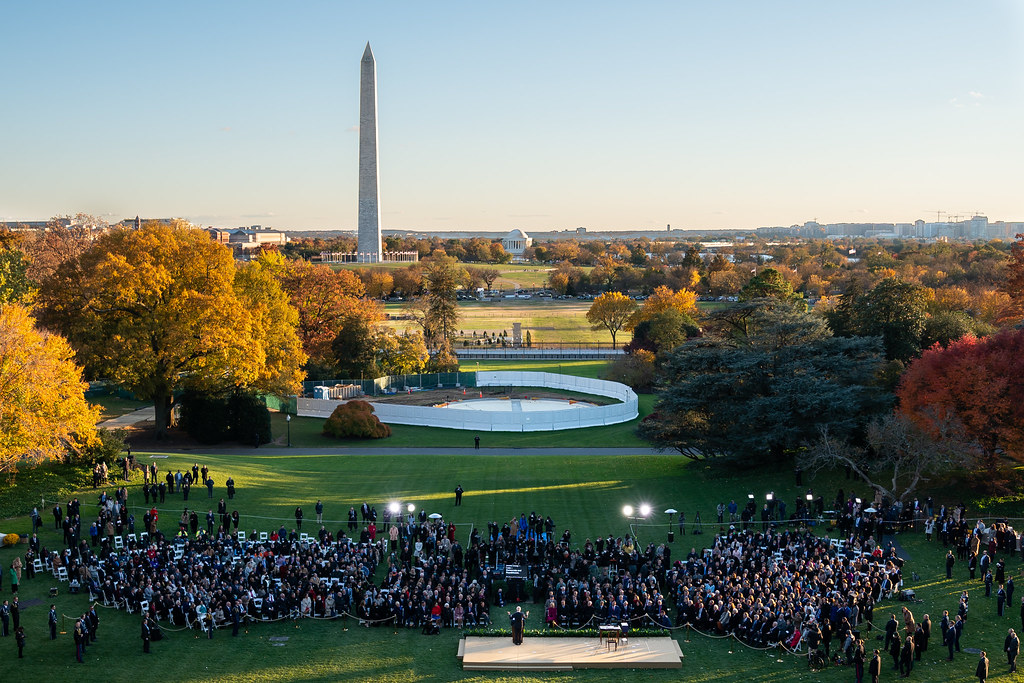Where Is the Biden Administration on Presidential Reform?
It is important to U.S. democracy and President Biden’s legacy that his administration actively and openly support some of the central reforms now on the table.

Published by The Lawfare Institute
in Cooperation With

Candidate Joe Biden presented himself as committed to reforming the presidency. But President Joe Biden and his administration have so far secured no accomplishments to match this commitment, and it is not clear what steps they have taken to fulfill it. In one respect, this is understandable. The administration has many more pressing short-term priorities, and most reforms would bite the Biden administration in the first instance. But Biden ran as a reforming president, and it is important to U.S. democracy and the president’s legacy that his administration actively and openly support at least some of the central reforms now on the table.
The case for comprehensive reform is straightforward. President Trump, building in some instances on the practices of his predecessors, exposed gaps and weaknesses in the law and norms that had governed the presidency since the great reforms of the 1970s. The Biden administration appeared to present a unique opportunity for contemporary reform. Most presidential administrations would reflexively oppose new restraints on the presidency. But Biden had served 36 years in the Senate, understood the need for checks on the presidency and seemed to support new restrictions on the presidency.
And yet the administration has done little to achieve urgently needed reforms. It issued a contacts policy to govern relationships between the White House and federal agencies, especially the Justice Department. But every administration since the Ford administration, including the Trump administration, had done this, and Biden’s policy, while sound, was not materially different from many of its predecessors. The Biden administration also issued an executive order on ethics that was in most respects an improvement over Trump’s order and a return to the Obama administration’s position. Neither of these policies amount to reform of the presidency.
Most of the significant presidential reforms require legislation. Numerous bills on Capitol Hill would bring serious accountability and constraint to the presidency. And the White House says in general terms that it supports reform. “We strongly support efforts to restore guardrails and breathe life back into those longstanding norms,” said White House spokesman Chris Meagher in September. “We’re working with Congress to do that,” he added.
But, with one exception, the White House has not spoken publicly in favor of any particular presidential reform bill or proposal. The exception is revealing. The administration supports repeal of the 2002 military force authorization for Iraq—a law that, the administration acknowledges, by itself supports “no ongoing military activities.” But the administration has not taken a similarly concrete position for the reform of the war authorization that matters—the 2001 force authorization that has been the all-purpose legal basis for global war against Islamist terrorists. The administration has issued bromides of support for serious war powers reform but has not yet publicly followed through.
The administration has been similarly silent on the many reform bills in Congress. The public still does not know the administration’s official position on the many presidential reforms in the Protecting Our Democracy Act, including ones (like emergency powers reform) that have strong bipartisan support. The White House has reportedly expressed concerns about a bipartisan proposal to enhance congressional subpoena power vis-a-vis the presidency. The White House has not, however, told the public concretely what reforms it is for. If it would do so, the chances of passage for whatever it supported would be greatly improved. The administration’s quietude significantly weakens any prospect for reform.
The Justice Department has also been disappointingly silent on the reforms it can implement on its own. Attorney General Merrick Garland has spoken eloquently about “the norms that have become part of the DNA of every Justice Department employee since Edward Levy’s stint as the first post-Watergate Attorney General.” But during the 2016 presidential campaign and the Trump years, it became clear that many such norms—on the politicization of law enforcement, on investigative announcements close to elections, on preinaugural investigations related to presidential campaigns, on speaking out about ongoing investigations and more—were ambiguous, unsettled or not reflected in written policy. Garland has so far taken no public action to fix these problems. And his department has opposed a proposal with broad bipartisan support to enhance the authority of the department’s inspector general.
In a few weeks the Biden administration will host a Summit for Democracy. In announcing the summit, President Biden stated: “No democracy is perfect, and no democracy is ever final. Every gain made, every barrier broken, is the result of determined, unceasing work.” It remains to be seen what determined work the Biden administration will do to support reforms of the presidency that are vital to U.S. democracy.




